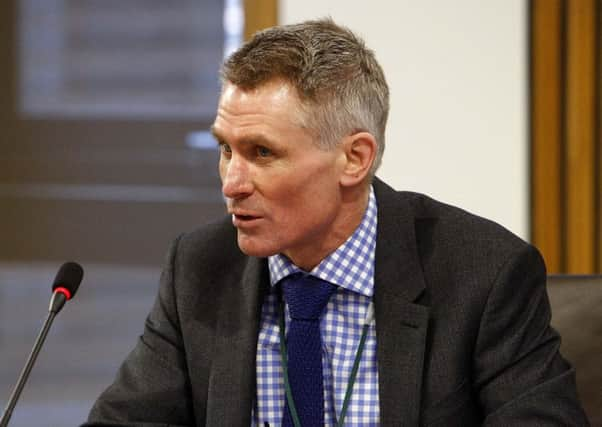Holyrood warned against sudden post-Brexit changes
This article contains affiliate links. We may earn a small commission on items purchased through this article, but that does not affect our editorial judgement.


That was the consensus of opinion given to Holyrood’s rural economy committee yesterday by a number of industry bodies who stressed that steadying the ship in turbulent times would be critical as the industry adapted.
Speaking as the committee took evidence on the implications of the outcome of the EU referendum for Scotland’s rural sectors, NFU Scotland policy director Jonnie Hall said that while change was required, there was a need to make sure that the pendulum didn’t swing too far or too fast – especially in the more marginal areas where beef and sheep producers would struggle to survive.
Advertisement
Hide AdAdvertisement
Hide Ad“Nevertheless we need to start to refocus payments so that more agricultural businesses in Scotland are more competitive, more efficient, more market focused so that their reliance on support diminishes in the long term,” Hall said.
“But it’s how we manage that change that is critical. The last thing the agricultural industry needs is any form of chaos rather than managed change.”
Pointing out that the £500 million a year spent on farm support generated close to £2.7 billion in rural spending – a return of roughly five-and-a-half times – he said that support would remain essential during what he termed “a very difficult and arguably turbulent” period for Scottish agriculture as new markets and opportunities were developed, adding: “Therefore the role of support will remain important but any changes are played out is critical.”
Dr Andrew Midgely, projects and research manager with Scottish Land & Estates agreed, saying that any new policies had to build in better delivery of environmental and other good services.
Midgely said that addressing issues such as biodiversity, water quality, climate change and flood prevention should be central to new support measures rather than being treated as a bureaucratic bolt-on – but he agreed a transitional period would be required.
Steve Thomson, senior agricultural economist with the SRUC, said there was likely to be a continued need for support in the Less Favoured Areas.
Plea over farm policy
Advertisement
Hide AdAdvertisement
Hide AdOn the question of where future control of farm policy and spending should lie, there was broad agreement that this should continue in the hands of the Scottish Government – although it was felt that there should be talks between the separate nations aimed at ensuring that differences in policies did not cause trade disruption between farming in the different administrations.
Hall said the NFUS was “crystal clear” that any approach that dropped a “Defra-centric”, one-size-fits-all policy on to the devolved nations would be unacceptable.
“Scotland should continue to determine its own agricultural policy and link together with the other parts of the United Kingdom on joint initiatives where appropriate. The needs of England, Wales, Northern Ireland and Scotland are very different and must be recognised.”
• Yesterday’s attack at Westminster saw the postponement of a high-level meeting between NFU Scotland and three UK government ministers to discuss Scottish agriculture’s Brexit priorities.
With one week to go until Article 50 is formally triggered, the union had been set to attended a meeting with ministers with trade, labour requirements and agricultural support at the top of the agenda.
An NFUS spokesman said that because of the worrying events at Parliament, the meeting with environment, food and rural affairs secretary Andrea Leadsom, secretary of state for Scotland David Mundell and minister of state for exiting the European Union David Jones would now be rescheduled. The NFUS delegation of president Andrew McCornick, vice-president Gary Mitchell and parliamentary officer Clare Slipper were still en route to the meeting at the time of the incident.
Speaking from London yesterday, McCornick said: “It is a sad and worrying incident and thoughts must be with the victims of this attack, and their families.
“Debate on Brexit can wait for another day. We hope that all three ministers will find diary space in the days ahead to sit down and give serious consideration to what Scotland’s farmers and crofters want from the Brexit negotiations.”